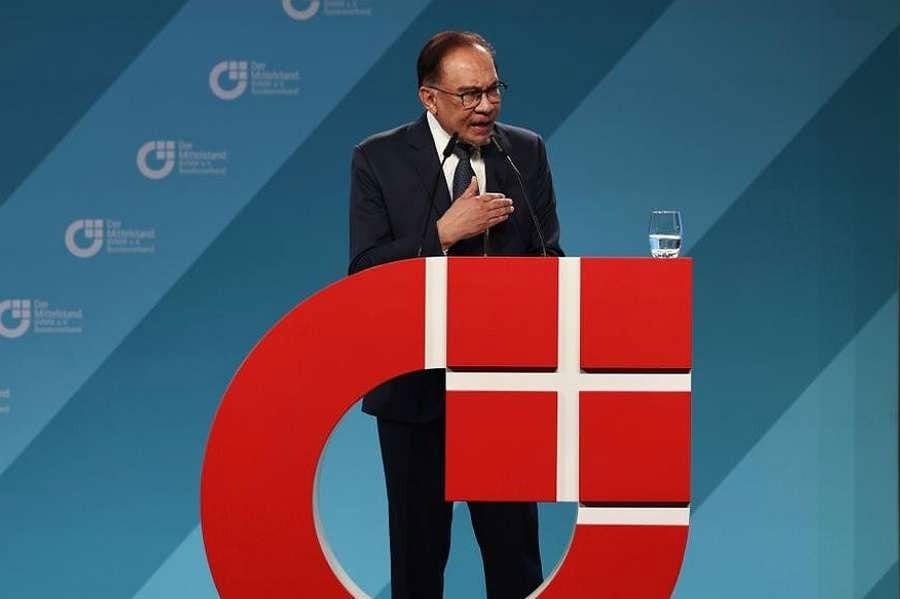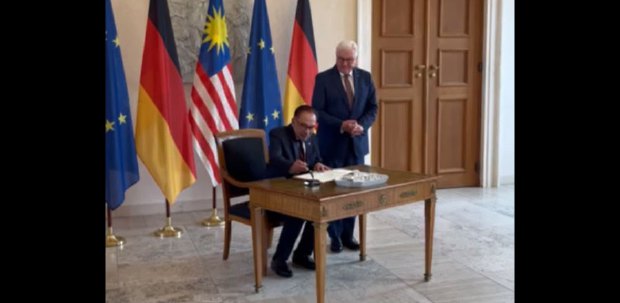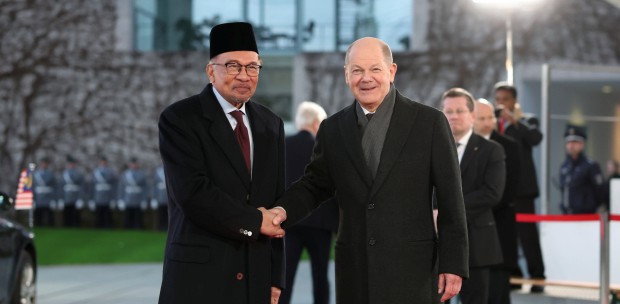BERLIN: Malaysia is strategically positioned to become a hub for German and European businesses to tap into the greater Asean and China markets, said Prime Minister Datuk Seri Anwar Ibrahim.
In issuing an open invitation to European investors, he said Malaysia has a skilled labour force, modern infrastructure, clear regulatory environment, and huge growth potential.
"We are a dynamic economy fit for the 21st century, and the perfect partner for German businesses.
"Malaysia also provides Germany with a strategic gateway into the wider Asean market, set to emerge as the world's fifth-largest economy by 2030.
"The region is primed for exponential growth," he said in his keynote address at the SME Future Day - also known as the Mittelstand - held at the Station Berlin here today.
The event, organised by the German Association for Small and Medium-sized Businesses (BVMW), brings together some 5,000 leading SMEs as well as key government and corporate figures.
Anwar, who is also finance minister, said Malaysia and Asean at large hold the advantage of enjoying close ties with not only the United States but also China.
"Rarely do you have a region working as one force like Asean, which is not only peaceful but also the fastest growing in the world, with the advantage of strong relations with the US, China, Japan and South Korea."
German and European businesses, he said, can benefit immensely from setting up base in Malaysia, which would enable them to easily tap into these markets.
"I encourage you to have a look and use the opportunity for the advancement of your countries' as well as Malaysia's economic benefits," he said.
The prime minister also paid tribute to Germany's rise as an economic power to emerge as the world's third largest economy despite the devastating effects of World War 2.
He said while Germany and Malaysia span different corners of the globe, the countries and its economies are built on a common foundation, namely SMEs.
SMEs, he said are often the lifelines in their respective communities while also driving economic dynamism at the global level.
He noted that more than 700 German companies such as Siemens, Infineon and Airbus already have a presence and have increased their level of investment in Malaysia.
Malaysia, he said, continues to be an attractive destination for foreign direct investment (FDIs), with German companies having invested 8.5 billion Euros in the country as of 2023.
"We may have differences of opinions on some issues but in terms of economic relations, we have become great friends," he said.
Anwar also elaborated on Malaysia's commitment to sustainability, with various programmes introduced to encourage its SMEs to embrace green initiatives.
Malaysia, he said, is also doubling down on the digital economy. He added that the establishment of the Digital Investment Office aligns with the goal of drawing 13.6 billion Euros in digital investment by 2025.
Anwar, in previous meetings with German businesses, had also touched on potential collaborations in the halal and franchise industries, with over 930 active franchise concepts in Germany and 693 in Malaysia.
He said Malaysia's status as a leader in the halal industry and gateway to the halal ecosystem means German businesses can access a global market of over two billion Muslims.
The prime minister is on a six-day official visit to Germany, his first since becoming prime minister.
His engagements with senior German government leaders, captains of industry and key businesses have so far generated potential investment interest of beyond RM44 billion.






